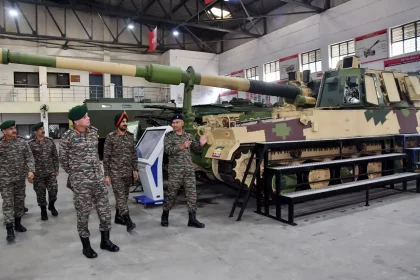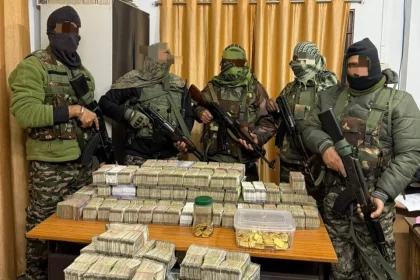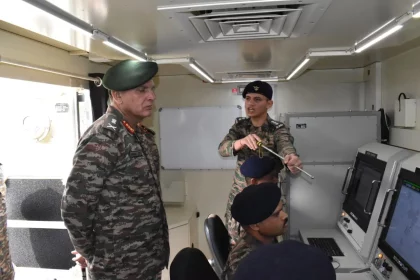Lt Gen Dhiraj Seth Reviews Training and Innovation Initiatives at EME School, Vadodara
Strengthening Technical Excellence and Indigenous Capability for a Future-Ready Indian Army.
Assam Rifles, DRI Seize Gold Worth ₹19 Crore and Cash in Joint Operation in Tripura
Intelligence-based action leads to recovery of 14 kg gold and ₹2.87 crore cash, highlighting strong inter-agency coordination against smuggling in…
Lt Gen Dhiraj Seth Reviews Air Defence Readiness at Vadodara Military Station
Army Commander praises operational excellence, advanced radar induction, and technology-driven readiness of First In Battle Air Defence Brigade.
US Seizes Sanctioned Tanker M/V Bella 1 in North Atlantic in Coordinated Federal Operation
Action underscores a whole-of-government approach as U.S. intensifies maritime sanctions enforcement against illicit shipping networks.
INS Tir, INS Shardul, INS Sujata, and ICGS Sarathi Deploy to Southeast Asia on Long-Range Training Mission
Deployment of the First Training Squadron strengthens officer training, tri-service jointness, and India’s maritime engagement with Southeast Asia under the…
Indian Navy Set to Commission 19 Warships in 2026, Marking Record Fleet Expansion
Record inductions highlight the rapid maturation of India’s indigenous shipbuilding ecosystem and strengthen the Navy’s operational reach across the Indo-Pacific..






